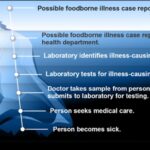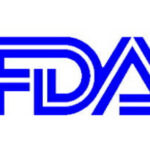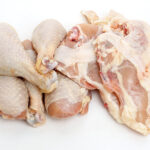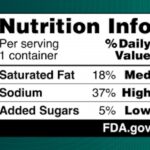Eight firms have been added to and FDA Import Alert for PFAS in clams. PFAS include chemicals that resist grease, oil, water, and heat. They were first used in the 1940s. Some PFAS are authorized by the FDA for limited use in food packaging, cookware, and food processing equipment. Accumulation of some PFAS does occur in humans and animals, and some types of PFAS have been associated with serious health problems. The FDA has been conducting a targeted survey for PFAS in molluscan shellfish, including clams, such as domestic and imported clams, both raw and processed; mussels; oysters; and scallops. These filter feeders remove nutrients and chemicals from the water, which can concentrate in the flesh of the animal. The FDA detected elevated levels of PFAS, including per- and … [Read more...]
Minnesota Starts Testing Raw Cow Milk for H5N1 Bird Flu
Minnesota is starting to test raw cow milk for H5N1 bird flu, according to a press release from the Minnesota Department of of Agriculture (MDA). The testing will start beginning the week of February 24, 2025. This is intended to identify where the virus is present, to monitor trends, and prevent its spread to dairy herds and poultry flocks around the state. MDA Commissioner Thom Petersen said in a statement, "H5N1 is an emerging disease in dairy cattle, and conducting disease surveillance supports the state’s ability to effectively respond to outbreaks and limit the potential impact on the livestock and poultry industries, as well as on public health." The notice stated that there are no concerns about the safety of the public milk supply, since all milk sold in stores to the … [Read more...]
Hepatitis A Exposure at Rheta’s Dining Hall at UW-Madison
A possible hepatitis A exposure has been reported for anyone who ate at Rheta's Market dining hall at the University of Wisconsin-Madison on certain dates. That hall serves about 4,000 students and staff. University of Wisconsin-Madison's University Health Services (UHS) sent a notice to students and faculty on Friday, February 7, 2025. Health services identified a student worker who was showing symptoms of hepatitis A. The student was infectious while working, prompting the notice and warning. Officials have since cleared Rheta's Market to resume normal operations. The news report did not state which dates the student worked. UHS Director Jack Baggott said in the email, "The diagnosed student will not return to work until they are medically cleared. This process is standard and … [Read more...]
Super Bowl Food Safety Tips From the USDA
Get Super Bowl food safety tips from the USDA to make your party the best ever. When you are entertaining, food safety is more important than ever. And you have to consider the health issues and ages of all of the people you invited. If you are getting takeout or having food delivered, make sure that it is quickly refrigerated or placed in the oven until your guests arrive. Pizza, chicken wings, sliders, chili and other favorites can't stay at room temperature for more than two hours, no matter how hot they were to begin with, or bacteria will grow. The danger zone is between 40°F to 140°F. In that zone, bacterial counts can double every 20 minutes. And the same rule applies to chilled foods. Get them back into the fridge after two hours; that time shrinks to one hour if the … [Read more...]
GAO Study of Foodborne Illness in U.S. Finds Issues
The Government Accounting Office (GAO) is responsible for examining how taxpayer dollars are spent and provides Congress and federal agencies with objective, non-partisan, fact-based information. It is an independent, non-partisan agency that works for Congress. The latest GAO study of foodborne illness in the United States has found some issues and recommends a national food safety strategy. The CDC states that only a small proportion of foodborne illnesses are diagnosed and reported to public health authorities every year. For Salmonella, only one case is reported for every 29 illnesses that actually occur. The report finds that the safety and quality of the U.S. food supply is covered by at least 30 federal laws administered by 25 agencies. Some goals aimed at reducing … [Read more...]
FDA Requires Pet Food Manufacturers to Add Bird Flu to Plans
The FDA is requiring that pet food manufacturers must add bird flu to their food safety plans after the virus was found in some raw products. This applies to all manufacturers of cat and dog foods that are covered by the FDA Food Safety Modernization Act Preventive Controls for Animal Food and that use uncooked meat, unpasteurized milk, or unpasteurized eggs in their products. The FDA is issuing this update to make sure that these manufacturers are aware of information about the new H5N1 hazard that is associated with these types of products. The FDA is tracking cases of H5N1 in domestic and wild cats in the states of California, Colorado, Oregon, and Washington that are associated with eating contaminated food products. At this time, the H5N1 virus can be transmitted to cats and … [Read more...]
FDA Releases Allergen, Food Safety, and Plant Based Labels
FDA releases allergen, food safety, and plant based labeling guidelines to help industry understand and comply with regulations. The food safety guidelines cover low moisture ready to eat foods. Food Allergens This guidance covers food allergens, including questions and answers about food allergen labeling requirements, the labeling of tree nuts, sesame, milk, eggs, incidental additives, highly refined oils, dietary supplement products, and certain specific packing and labeling situations, such as individual units within a multiunit package. The FD&C Act requires that any food that is made from two or more ingredients must declare each ingredient by its common or usual name. But consumers may not be familiar with those names, and may not recognize that the ingredients contain … [Read more...]
FDA Releases Strategy for Control of Viruses in Berries
FDA has released a prevention strategy for the control of viruses in berries. This is in response to hepatitis A and norovirus outbreaks linked to fresh and frozen berries in the U.S. and globally. There has not been a virus outbreak in the United States in 35 years that was linked to berries that were domestically produced. The outbreaks have been linked to imported fresh and frozen berries, including an outbreak linked to Made With frozen strawberries. The berries were grown in Baja California. The list of hepatitis A outbreaks linked to berries is long. In 2019, the FDA began sampling frozen berries for hepatitis A and norovirus. This new strategy seems like a logical continuation of that work. Contamination of these berries can occur in several ways, including illnesses in … [Read more...]
Consumer Reports: USDA Should Strengthen Its Salmonella
Consumer Reports has asked the USDA to strengthen its Salmonella framework to reduce consumer illnesses from poultry. CR has filed a comment letter with that agency, which states that poultry contaminated with Salmonella bacteria above a certain level should be kept off the market and recalled. Chicken accounts for amore Salmonella illnesses than any other food category. And the rate of those illnesses has been increasing over the last ten years. Brian Ronholm, director of food policy at Consumer Reports said in a statement, "Salmonella infections from poultry have increased steadily over the past decade and sicken hundreds of thousands of Americans every year. The USDA’s current performance standards to reduce Salmonella infections from poultry have failed to drive down … [Read more...]
FDA Proposes Updates to Front of Package Nutrition Labels
The FDA is proposing updates to front of package nutrition labels to help consumers make healthier choices. The rule would require a front-of-package (FOP) nutrition label on most packaged foods. These labels would give consumers more information at a glance. This label is called the "nutrition info box," and it would complement the longer label already on these products that is usually found on the back or side panel. The difference is that the new label would amplify the most important nutrient information about saturated fat, sodium, and added sugars. The contents would be labeled "Low," Med," or "High," to give consumers information at a glance. These descriptive terms follow federal dietary recommendations and may encourage consumers to choose more nutrient-dense … [Read more...]














